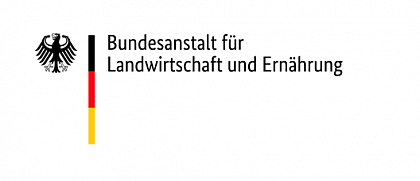Site-differentiated evaluation and crediting of nitrification inhibitors
as a climate change mitigation measure in crop production

Bundesanstalt für Landwirtschaft und Ernährung
Short description
The agricultural sector causes about 80% of nitrous oxide emissions in Germany, which is a greenhouse gas about 300 times more harmful than carbon dioxide. With regard to climate change and the Kyoto Protocol, which makes a reduction of greenhouse gases mandatory, measures must be taken to reduce N2O emissions. One reduction measure involves the use of nitrification inhibitors, which have been shown to reduce nitrous oxide emissions in nitrogen fertilization. Despite the great potential of nitrification inhibitors, an all-inclusive assessment needs further research. This includes studies on the climatic effects of nitrification inhibitors as well as on the stability of their effects and influences on the soil microbiome. The joint project Nitriklim aims to provide new insights and results regarding the effect of nitrification inhibitors as a measure against climate change.
To this end, field trials are being carried out at eight sites and laboratory tests are being conducted in four laboratories as part of a joint project. One test site, which is supervised by the University of Halle, is Cunnersdorf at the SKW Piesteritz. Two field trials are being set up and carried out there as part of the project. The first trial deals with nitrification inhibitors as a climate protection effect. In this plot trial, inhibited and non-inhibited nitrogen fertilizers in winter wheat are investigated annually on changing trial plots with regard to nitrous oxide measurements. The nitrous oxide measurements are measured weekly during the year and the Nmin dynamics are analyzed by means of soil samples. The second trial is a static trial in which the crop rotation silage maize, winter wheat, winter barley is cultivated on the same trial area for three consecutive years. The focus of this trial is to determine the influence of a multi-year application of different nitrification inhibitors in terms of effect stability, N-dynamics and N-efficiency, as well as the effect on the soil microbiome.
The project makes an important contribution to a productive and sustainable arable farming, especially with regard to the goals of the arable farming strategy "2035“.
Project duration
November 2022 – October 2026
Staff involved
- Lea Krug
- Prof. Dr. Janna Macholdt
- PD Dr. Jan Rücknagel
- Steffen Both
- Viola Röder
- Helge-Stephan Pentschew
Collaboration Partners
- Thünen Institute for Agricultural Climate Protection, Braunschweig
- University of Hohenheim, Hohenheim
- Julius Kühn Institute for Crop and Soil Science, Braunschweig
- Georg-August-University, Göttingen
- University of Applied Sciences, Osnabrück
- University of Kassel
- Christian-Albrechts University, Kiel
- Stickstoffwerke (SKW) Piesteritz, Lutherstadt Wittenberg
Funding
Federal Office for Agriculture and Food

